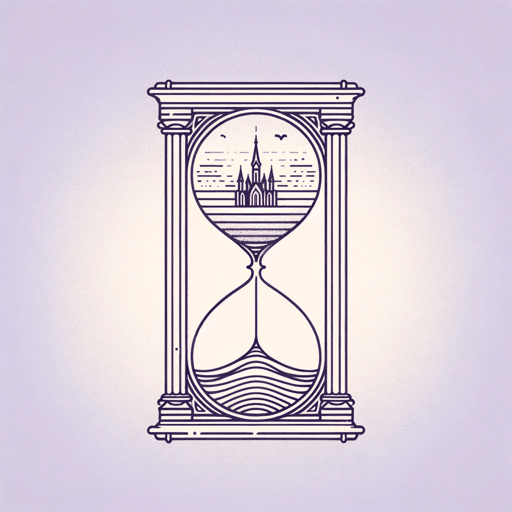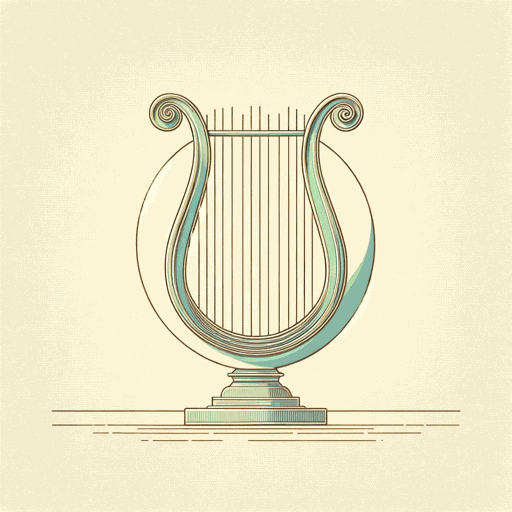26 pages • 52 minutes read
Thomas GrayElegy Written in a Country Churchyard
Fiction | Poem | Adult | Published in 1751A modern alternative to SparkNotes and CliffsNotes, SuperSummary offers high-quality Study Guides with detailed chapter summaries and analysis of major themes, characters, and more. For select classroom titles, we also provide Teaching Guides with discussion and quiz questions to prompt student engagement.
Summary and Study Guide
Overview
First anonymously published in 1751, “Elegy Written in a Country Churchyard” is by far Thomas Gray’s most famous poem, though he didn’t write many poems. If Gray were a pop band, he’d be considered a one-hit wonder. Nonetheless, “Elegy Written in a Country Churchyard” is among the most important and influential elegies ever written, and among the most well-regarded poems written in 18th century England.
As the title suggests, the poem takes place in a graveyard in the English countryside. The speaker lingers in the graveyard long after dark and contemplates the lives and deaths of the lower-class farmers buried there. The poem concludes with the speaker imagining his own death. In this imagining, a visitor to the cemetery asks a white-haired shepherd, or “swain,” about the poet. The shepherd tells the visitor what little he knows of the poet’s life and burial, then points to the poet’s tombstone and tells the visitor to read the inscription there (the shepherd is uneducated and cannot read). The poem ends with the epitaph.
Poet Biography
Thomas Gray was born in England in 1716 and died in 1771. He was educated first at Eton, then at Cambridge. Gray lived in Cambridge most of his adult life, serving in varied academic posts.
Gray lost his father in 1741 and a close friend named Richard West in 1742; that year, Gray wrote a sonnet for West. The rhyme scheme of the sonnet is similar to the rhyme scheme of “Elegy Written in a Country Churchyard,” although the sonnet is widely considered an inferior poem (Gray, Thomas. “Sonnet [on the Death of Mr. Richard West].” Thomas Gray Archive.) According to Samuel Johnson, renowned 18th century literary critic, 1742 is also the year Gray “seems first to have applied himself seriously to poetry” (Johnson, Samuel. “Thomas Gray.” The Lives of English Poets.)
Serious though he was, Gray was not prolific. He wrote one of the best English poems of the 18th century, but not much else. These two facts combine to create an air of mystery around “Elegy Written in a Country Churchyard.” A friend of Gray’s quoted by Johnson in his biography asks: “What signifies so much knowledge, when it produced so little? Is it worth taking so much pains to leave no memorial but a few poems?” (Johnson, Samuel. “Thomas Gray.” The Lives of English Poets.) “Elegy Written in a Country Churchyard” responds to those questions as it ponders what human lives are worth if they do not leave much of a record after their death. The answer supplied in the poem? Those lives are worth quite a lot.
Poem Text
“Elegy Written in a Country Churchyard”
The curfew tolls the knell of parting day,
The lowing herd wind slowly o'er the lea,
The plowman homeward plods his weary way,
And leaves the world to darkness and to me.
Now fades the glimm'ring landscape on the sight,
And all the air a solemn stillness holds,
Save where the beetle wheels his droning flight,
And drowsy tinklings lull the distant folds;
Save that from yonder ivy-mantled tow'r
The moping owl does to the moon complain
Of such, as wand'ring near her secret bow'r,
Molest her ancient solitary reign.
Beneath those rugged elms, that yew-tree's shade,
Where heaves the turf in many a mould'ring heap,
Each in his narrow cell for ever laid,
The rude forefathers of the hamlet sleep.
The breezy call of incense-breathing Morn,
The swallow twitt'ring from the straw-built shed,
The cock's shrill clarion, or the echoing horn,
No more shall rouse them from their lowly bed.
For them no more the blazing hearth shall burn,
Or busy housewife ply her evening care:
No children run to lisp their sire's return,
Or climb his knees the envied kiss to share.
Oft did the harvest to their sickle yield,
Their furrow oft the stubborn glebe has broke;
How jocund did they drive their team afield!
How bow'd the woods beneath their sturdy stroke!
Let not Ambition mock their useful toil,
Their homely joys, and destiny obscure;
Nor Grandeur hear with a disdainful smile
The short and simple annals of the poor.
The boast of heraldry, the pomp of pow'r,
And all that beauty, all that wealth e'er gave,
Awaits alike th' inevitable hour.
The paths of glory lead but to the grave.
Nor you, ye proud, impute to these the fault,
If Mem'ry o'er their tomb no trophies raise,
Where thro' the long-drawn aisle and fretted vault
The pealing anthem swells the note of praise.
Can storied urn or animated bust
Back to its mansion call the fleeting breath?
Can Honour's voice provoke the silent dust,
Or Flatt'ry soothe the dull cold ear of Death?
Perhaps in this neglected spot is laid
Some heart once pregnant with celestial fire;
Hands, that the rod of empire might have sway'd,
Or wak'd to ecstasy the living lyre.
But Knowledge to their eyes her ample page
Rich with the spoils of time did ne'er unroll;
Chill Penury repress'd their noble rage,
And froze the genial current of the soul.
Full many a gem of purest ray serene,
The dark unfathom'd caves of ocean bear:
Full many a flow'r is born to blush unseen,
And waste its sweetness on the desert air.
Some village-Hampden, that with dauntless breast
The little tyrant of his fields withstood;
Some mute inglorious Milton here may rest,
Some Cromwell guiltless of his country's blood.
Th' applause of list'ning senates to command,
The threats of pain and ruin to despise,
To scatter plenty o'er a smiling land,
And read their hist'ry in a nation's eyes,
Their lot forbade: nor circumscrib'd alone
Their growing virtues, but their crimes confin'd;
Forbade to wade through slaughter to a throne,
And shut the gates of mercy on mankind,
The struggling pangs of conscious truth to hide,
To quench the blushes of ingenuous shame,
Or heap the shrine of Luxury and Pride
With incense kindled at the Muse's flame.
Far from the madding crowd's ignoble strife,
Their sober wishes never learn'd to stray;
Along the cool sequester'd vale of life
They kept the noiseless tenor of their way.
Yet ev'n these bones from insult to protect,
Some frail memorial still erected nigh,
With uncouth rhymes and shapeless sculpture deck'd,
Implores the passing tribute of a sigh.
Their name, their years, spelt by th' unletter'd muse,
The place of fame and elegy supply:
And many a holy text around she strews,
That teach the rustic moralist to die.
For who to dumb Forgetfulness a prey,
This pleasing anxious being e'er resign'd,
Left the warm precincts of the cheerful day,
Nor cast one longing, ling'ring look behind?
On some fond breast the parting soul relies,
Some pious drops the closing eye requires;
Ev'n from the tomb the voice of Nature cries,
Ev'n in our ashes live their wonted fires.
For thee, who mindful of th' unhonour'd Dead
Dost in these lines their artless tale relate;
If chance, by lonely contemplation led,
Some kindred spirit shall inquire thy fate,
Haply some hoary-headed swain may say,
"Oft have we seen him at the peep of dawn
Brushing with hasty steps the dews away
To meet the sun upon the upland lawn.
"There at the foot of yonder nodding beech
That wreathes its old fantastic roots so high,
His listless length at noontide would he stretch,
And pore upon the brook that babbles by.
"Hard by yon wood, now smiling as in scorn,
Mutt'ring his wayward fancies he would rove,
Now drooping, woeful wan, like one forlorn,
Or craz'd with care, or cross'd in hopeless love.
"One morn I miss'd him on the custom'd hill,
Along the heath and near his fav'rite tree;
Another came; nor yet beside the rill,
Nor up the lawn, nor at the wood was he;
"The next with dirges due in sad array
Slow thro' the church-way path we saw him borne.
Approach and read (for thou canst read) the lay,
Grav'd on the stone beneath yon aged thorn."
THE EPITAPH
Here rests his head upon the lap of Earth
A youth to Fortune and to Fame unknown.
Fair Science frown'd not on his humble birth,
And Melancholy mark'd him for her own.
Large was his bounty, and his soul sincere,
Heav'n did a recompense as largely send:
He gave to Mis'ry all he had, a tear,
He gain'd from Heav'n ('twas all he wish'd) a friend.
No farther seek his merits to disclose,
Or draw his frailties from their dread abode,
(There they alike in trembling hope repose)
The bosom of his Father and his God.
Gray, Thomas. “Elegy Written in a Country Churchyard.” 1751. Poetry Foundation.
Summary
The title of this poem provides the setting: “Elegy Written in a Country Churchyard” entirely takes place in a graveyard in the English countryside. The poem begins just as it’s getting dark. The church bells toll, a herd of cows and a plowman pack it in for the day, but the speaker stays in the cemetery. It gets darker still. A beetle flies about; an owl hoots at the moon from a tower covered with ivy vines. Then, the speaker describes the graves beneath the cemetery trees and imagines what the people in the graves will no longer do. These dead men will no longer be woken by daybreak, swallows, roosters, and horns. They will no longer return home and be greeted by wives and children. They will no longer farm the land.
The people buried in the cemetery are lower-class and their graves are not elaborate. Even so, the speaker argues readers of the poem should not make fun of or look down on them because ambition, achievement, power, beauty, wealth, and fame do not save anyone from death. No matter what humans accomplish in life, everyone one day dies. The speaker also argues that the men buried in the churchyard might have had a great deal of artistic talent, but simply not had the opportunity to use it. Moreover, the speaker acknowledges that plenty of famous people with fancy graves—like English statesman Oliver Cromwell—have blood on their hands. The dead in this churchyard might not be written about in history books, but they also haven’t committed terrible crimes. Finally, the speaker argues that it’s natural to die and looking at nature teaches us about death.
This gets the speaker thinking about his own death. He imagines, after death, someone else standing in the graveyard and asking what happened to him; he envisions a white-haired shepherd, or “hoary-headed swain” (Line 97), telling this new visitor what they know. In this imagined conversation, the old shepherd describes seeing the poet every day walking around and enjoying nature. Then one day, the shepherd doesn’t see the poet. A couple days after that, the shepherd sees the poet’s funeral. The conversation ends with the shepherd telling the visitor to read the epitaph on the poet’s grave (the shepherd is illiterate, so can’t read). The visitor does this and the poem ends with the epitaph.
Related Titles
By Thomas Gray



